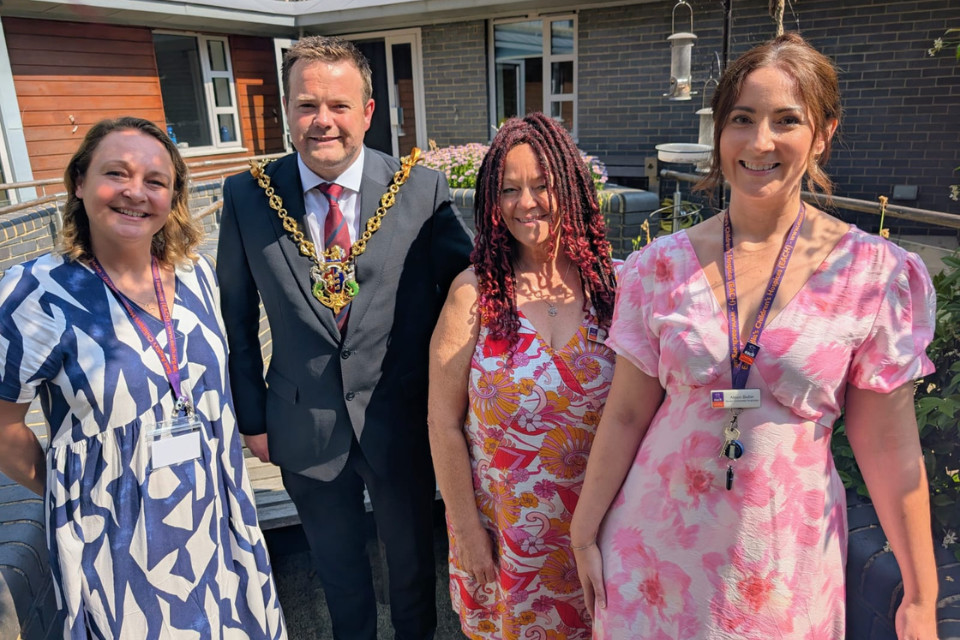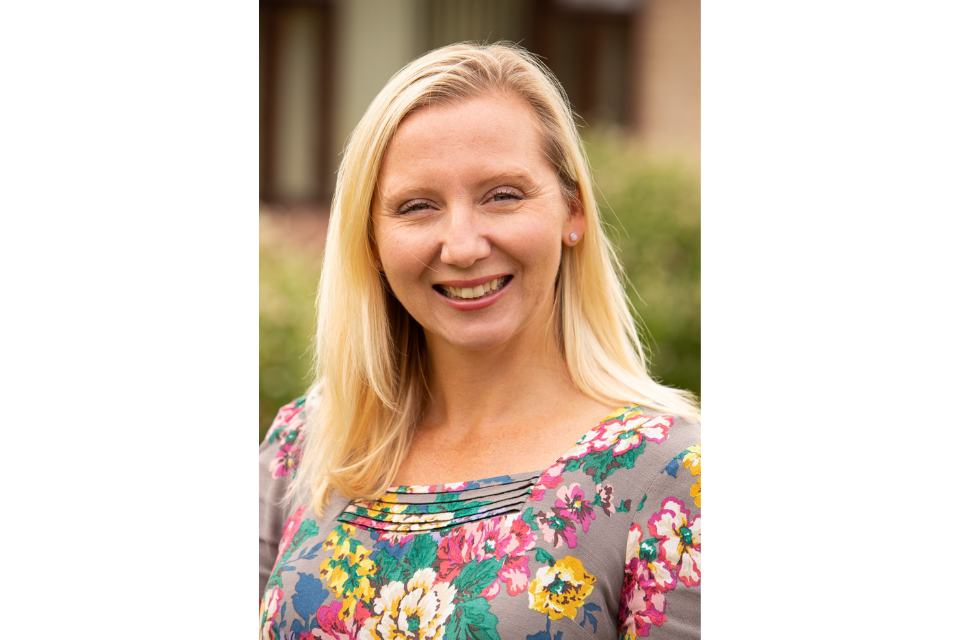Pete Maxey has seen plenty of change in nearly a quarter of a century with East Anglia’s Children’s Hospices (EACH). As a long-serving nurse, the 59-year-old has cared for and supported countless children, young people and families since joining in January 1999.
He has also seen first-hand how EACH has grown and evolved over the years, from its former Quidenham hospice to the much-heralded opening of The Nook in 2019.
Pete feels proud to be involved and is passionate about his role, having chosen to return to nursing after spells as both a team leader and care manager.
“I’ve seen a lot in my 24 years,” he said.
“It’s been an interesting journey and it’s likely I’ll remain with the organisation for the rest of my career. There’s no reason to move on. During my time here I was once part of the management team but felt drawn back to the care floor.
“I missed directly caring for the children because that’s what I particularly enjoy. I came back to what I love doing most, which is where I started. It’s a system and an organisation that’s grown massively in the time I’ve been here.
“Take The Nook, for example. It’s an extraordinary environment, compared to Quidenham. Quidenham was great, don’t get me wrong. I was there for many years, but I think sometimes you forget the challenges we faced in that old building.
“When I started, it was a completely different organisation. We didn’t have a family support team and that’s an area that’s blossomed enormously in terms of what we offer.
“Likewise our symptom management team. Again, that’s something that didn’t exist when I started.”
Pete was destined for a career in nursing from a relatively young age, although his first experience of full-time work could barely have been more different. His first job, after leaving school, was as a monkey keeper, at a sanctuary in Cornwall.
He did it for about eight years and after that, when it was time to move on, he considered two things – nursing and teaching.
“I had conversations with friends and the more they tried to put me off nursing, the more appealing it became,” said Pete.
“I ended up doing my training in North Wales and then in Aberdeen, where I did children’s nursing. Through that, I developed an interest in working with families and children with long-term illnesses and that led me down the road towards hospice care.
“I started working at Quidenham in January 1999, initially as a part-time member of staff and then full-time, and have been working here ever since. I love being with the children, spending time looking after them, giving them the care they need and occupying and entertaining them.
“As everybody here knows, one of the things I enjoy most is having music sessions with the children as I’m in a tribal folk band. It’s one of my passions outside of work and I enjoy taking the children into the music room, engaging them with various instruments and making different sounds.
“I try to incorporate music into my work every day, if possible. The complex needs of the children mean communication is never automatically straightforward, so using sound, vision or music is one of the real pleasures of my job.
“When you have that moment where you make a connection, particularly with a child that’s limited in their ability to interact because of their various complex disabilities and needs, it’s magic.
“It doesn’t happen all the time, but sometimes you make a discovery about a child and it’s very special. Obviously some children can just tell you exactly what they want, feel and enjoy, but for others that can’t do that, it’s a really important to make the extra effort.”
Pete is passionate about his work and proud to work for EACH. He says it is both rewarding and a privilege building relationships with families, especially at what can often be a challenging and emotional time in their lives.
It can be hard leaving work behind, especially after a particularly difficult day, but he has his own processes to help him cope.
“Some days are more enjoyable than others, of course, and the job definitely brings challenges, given the nature of the work we do,” he said.
“I’m never sure how the day’s going to end, compared to how it begins. It’s certainly rewarding, though, and a real privilege being able to spend time with these children and their families.
“After a good day, I walk away from a shift with a sense of huge satisfaction, knowing I’ve made a difference. I guess that applies in any walk of life, and any job, but I feel fortunate to be in that position.
“We talked about this in one of our supervision sessions, and the issue of leaving work behind is something that comes up. I have my own ways, and my experience has given me mental processes that help.
“After a really difficult day you do find you’ve gone home with things and I don’t beat myself up about that. Most of the time, I have a drive home, listen to music and talk to family members, but I also find talking it through with the with the care team is helpful. We’re good at doing that.
“The team is one I’m proud to work for and we really support each other. One of our care assistants has been doing a lot of mindfulness training and those practices are particularly helpful, to make sure you can get to sleep at night and that things aren’t rattling around in your mind.”
Pete feels he has ample opportunities to develop his career and would recommend working for EACH.
“I’d definitely recommend it for people who want this kind of challenge,” he said.
“I’m very proud to work within our care team but also the wider organisation, including fundraising and retail. EACH shops are an enormous success and I feel a little humbled by how generous people are, given the current climate.
“In terms of the depth of what we now offer families, and the level of community care available, it’s a massive improvement. We’ve upped our game and can now offer care in a way we weren’t able to when I started. I feel proud and grateful to have been part of that journey.”


